BD² Inaugural All-Investigator Meeting

BD² was created to push on what’s possible to improve care for people with bipolar disorder. Our recent all-investigators meeting was an incredible moment to gather as a community to celebrate how far we’ve come, what’s in store in the future, and how together, we will change the world.
Four years ago, philanthropic leaders united with the Milken Institute and embarked on a journey to launch a new research initiative focused on bipolar disorder. This month, we convened all of the inaugural funded scientists, researchers, and clinicians in that research initiative, BD²: Breakthrough Discoveries for thriving with Bipolar Disorder.
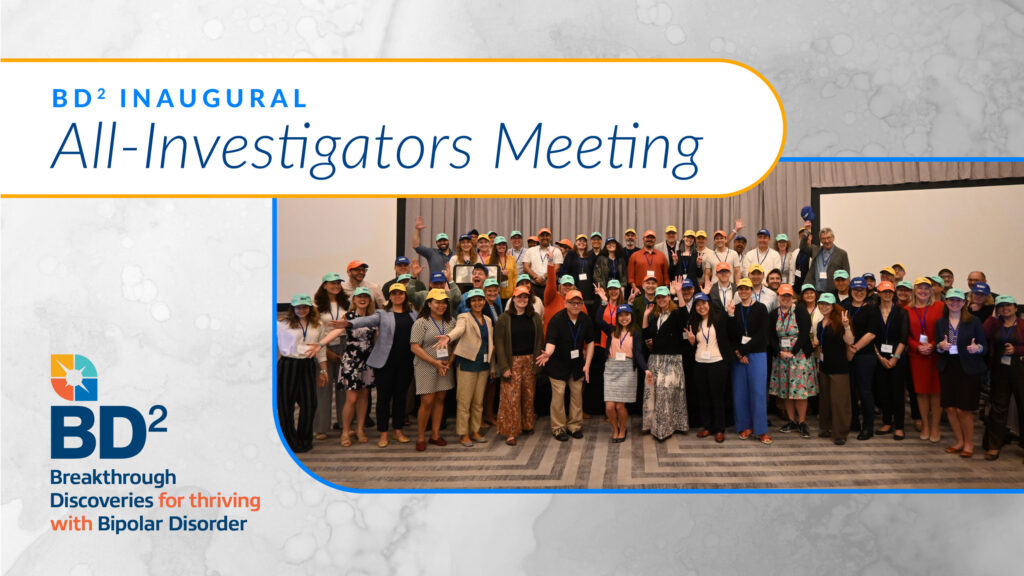
It was a proud moment for the BD² team and me to engage this unmatched scientific network, all of whom have raised their hands to say that they were not only passionate about bipolar disorder, but want to engage in science in a more collaborative and integrated way. We came together to learn from each other and accelerate our individual efforts toward intentionally and swiftly connecting the science to more rapid improvements in diagnosis and care.
During our time together, we heard from our talented teams about their research, coalescing around the possibilities that lie ahead and the challenges we can break through as a collective force.
- Ben Neale, PhD, and his team are currently nearly doubling the number of samples sequenced so far – and with an emphasis on bringing global diversity to the effort.
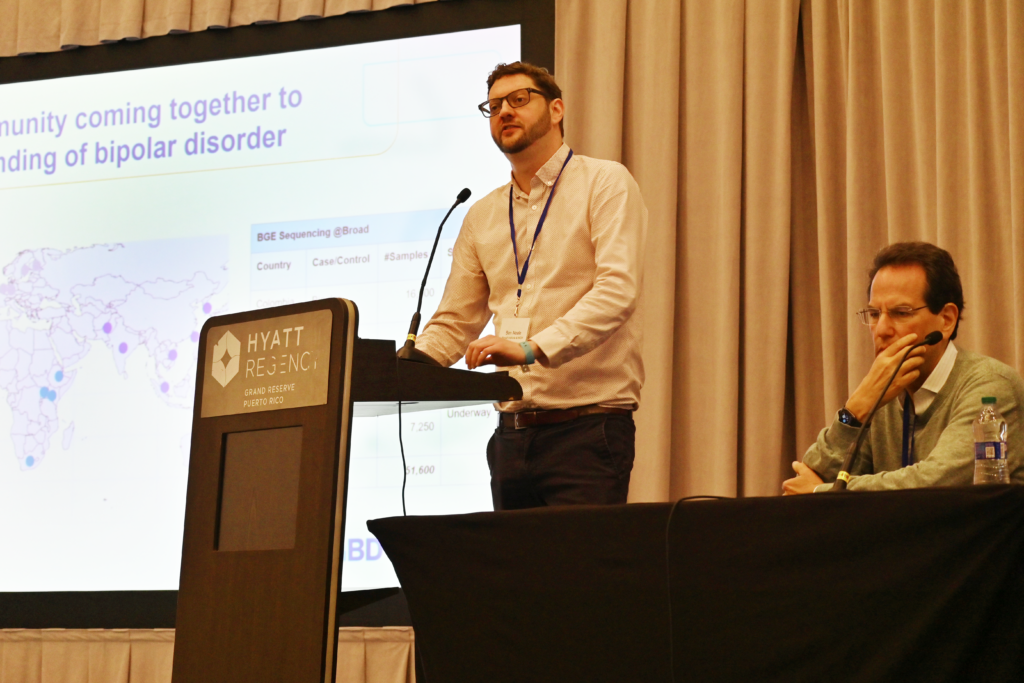
Benjamin Neale, PhD, The Broad Institute of MIT and Harvard
- Panos Roussos, MD, MS, PhD and team are working to analyze tissue across several brain banks donated from people with bipolar disorder that have been waiting for funding to be analyzed. Now these individual brain samples will contribute to a brain atlas for bipolar as has been so impactful across other illnesses.
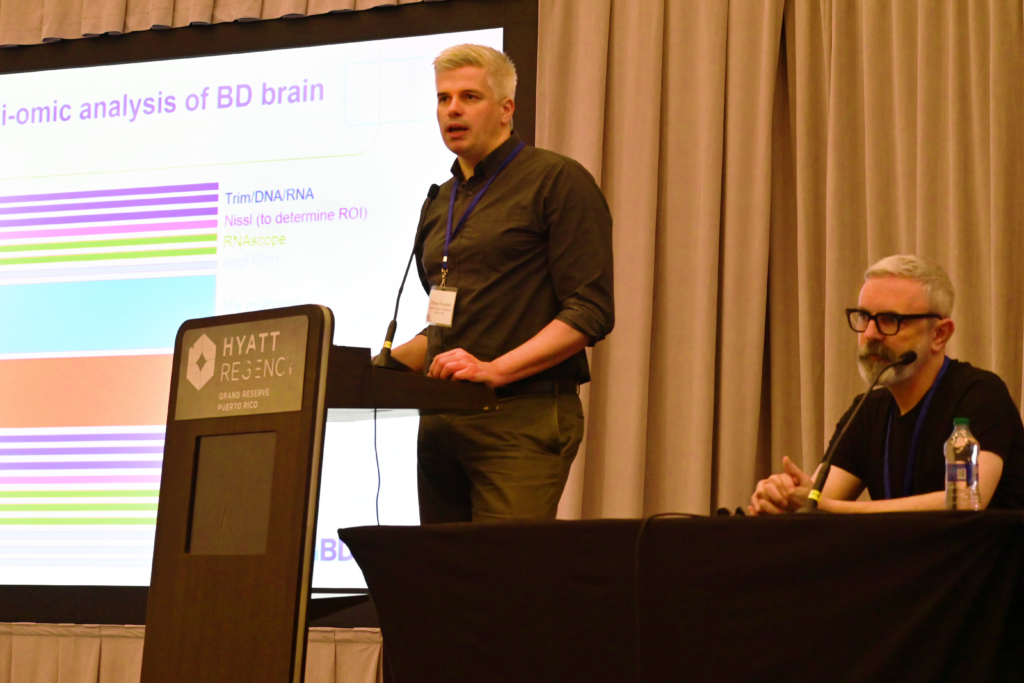
Panos Roussos, MD, MS, PhD, Icahn School of Medicine at Mount Sinai
- BD²’s first cohort of Discovery Research teams have begun their proposed innovative projects that will expand how bipolar disorder is studied and treated. These projects represent collaborative, rigorous, and novel science, and create synergistic opportunities to learn from one another.
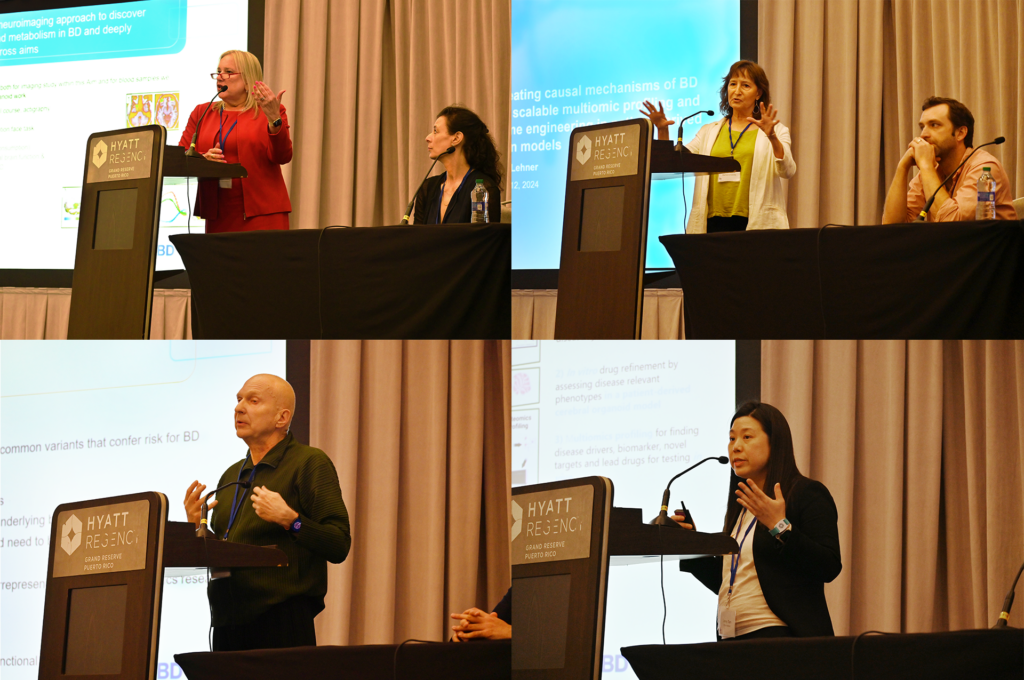
From left to right, top to bottom: Hilary Blumberg, MD, Yale University; Julie Kauer, PhD, Stanford University; Thomas Lehner, PhD, MD, the New York Genome Center; and Jenny Tam, PhD, the Wyss Institute at Harvard University
- The Integrated Network site leads are bucking against the status quo and recognizing opportunity like none other – not just in bipolar but in science and medicine. The sites are working together to both bring together data across sites and learn from that data so that they can improve care and people’s lives. (Eve Lewandowski, PhD at Brigham and Women’s Hospital-McLean Hospital; Fernando Goes, MD at Johns Hopkins University; Balwinder Singh, MD at Mayo Clinic; Jennifer Kruse, MD at UCLA; Kelly Ryan, PhD at University of Michigan; Jair Soares, MD, PhD at UTHealth Houston)
These incredible teams are moving towards revolutionary progress, and I am thrilled they are a part of our approach to break down barriers between innovation, scientific findings, and clinical care. As it stands, progress has been stunningly fast. Within the last two weeks, the Mayo Clinic and UTHealth Houston Integrated Network sites have recruited the first participants in the groundbreaking longitudinal study. And, the other sites will be recruiting soon.
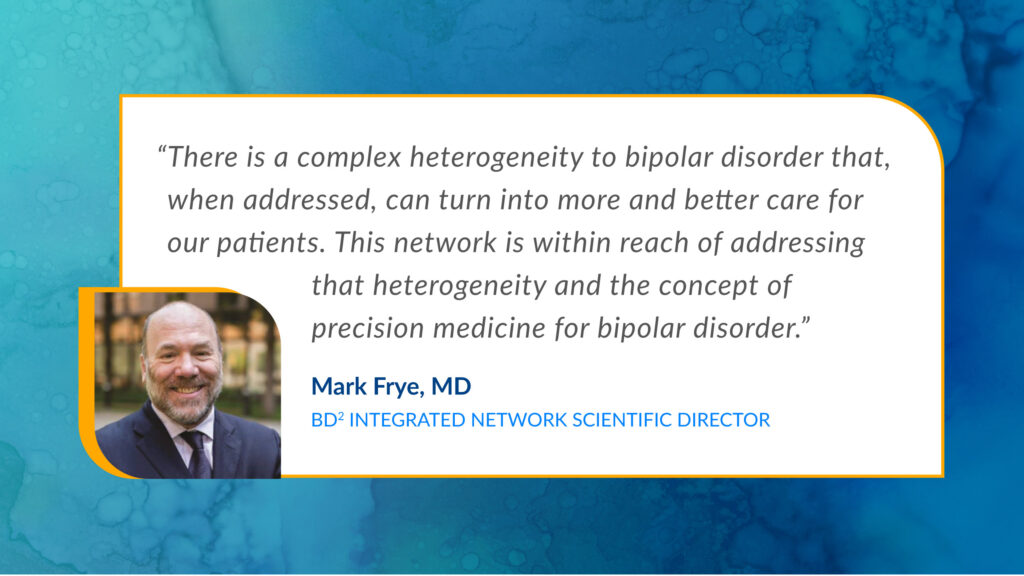
We were also honored to be joined by Dr. Devika Bhushan, the former acting California Surgeon General and a pediatrician and public health practitioner, to discuss the varying types and impacts of stigma around mental health and bipolar disorder. Dr. Bhushan is an award-winning mental health activist, known for destigmatizing living with serious mental illness and spreading hope by publicly sharing her journey with bipolar disorder. Her speech inspired our community and our continued path towards precision care so that all those with bipolar disorder can thrive.
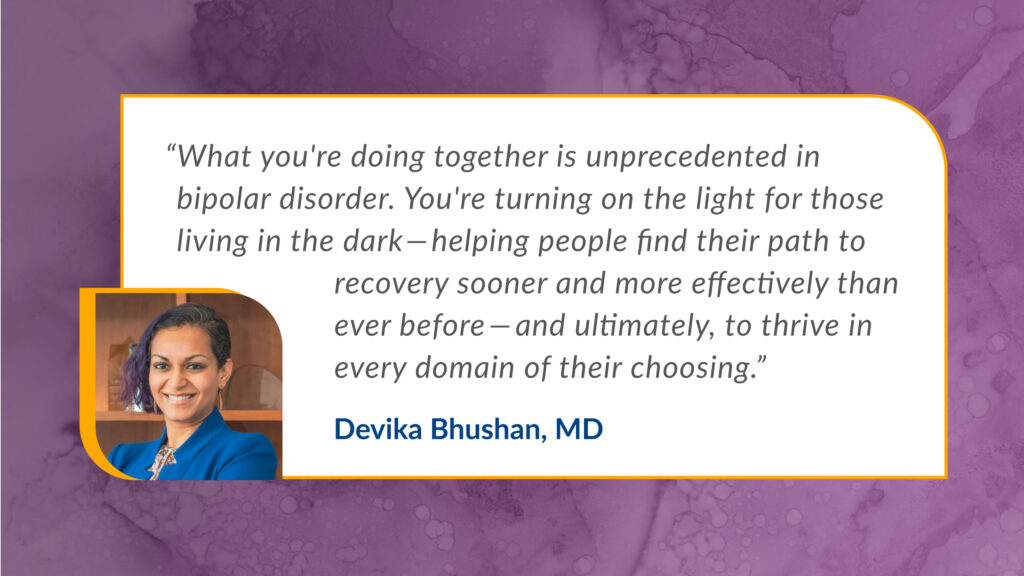
Dr. Devika Bhushan, MD on BD²: Breakthrough Discoveries for thriving with Bipolar Disorder
Read her well-being newsletter, Ask Dr. Devika B
Listen to her podcast, Spread the Light with Dr. Devika B
While we intuitively know that bipolar disorder is challenging, no single person or idea is positioned to “solve” it. That’s why BD² was built – to come together intentionally, in a collaborative model that transcends each research lab and team. While we cannot know what discoveries and insights are on the way, we are set up to act.
This network has created a world of new hope and promise for both the bipolar community and the broader medical research community. We stand ready to show that discoveries can be translated into improved care and outcomes. And it is this vision that brought us together – because we know that we cannot wait around and we cannot wait any longer.
